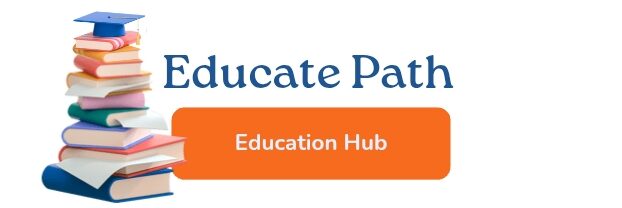Looking for the New Nigerian Secondary School Curriculum for JSS 1–3 and SS 1–3? We’ve got you covered. Here’s all the information you need.
Nigeria Education has taken major reforms. The Nigerian Educational Research and Development Council (NERDC), and the Federal Ministry of Education, has introduced a new secondary school curriculum designed to prepare students for real life, not just exams.
This curriculum applies to both Junior Secondary School (JSS 1–3) and Senior Secondary School (SS 1–3). It includes not only academic knowledge but also practical skills, entrepreneurship, digital literacy, moral values, and cultural awareness.
In this guide, we’ll break down all the subjects for JSS and SS, explain why each subject matters, and show how parents, teachers, and students can take full advantage of the new Nigerian secondary school curriculum for JSS 1–3 and SS 1–3

Check Also: New Nigerian Primary School Curriculum for Primary 1-3
Subjects for Junior Secondary School (JSS 1–3)
Junior Secondary School serves as the bridge between primary education and senior secondary school. At this level, students are exposed to subjects that help them discover their interests and strengths.
Here are the core subjects for JSS under the new Nigerian secondary school curriculum for JSS 1–3 and SS 1–3
1. English Language
English remains the language of instruction in Nigeria. In JSS, the curriculum focuses on:
- Essay and letter writing.
- Vocabulary building.
- Reading comprehension and summary writing.
- Public speaking and debate.
This prepares students to communicate fluently in English, think critically, and excel in both academics and everyday life.
2. Mathematics
Mathematics gets more advanced in JSS, covering the following topics:
- Algebra and equations.
- Geometry and measurements.
- Statistics and probability.
- Simple trigonometry.
The aim is to train students in logical reasoning, problem-solving, and analytical thinking.
3. Basic Science and Technology (BST)
This combined subject includes:
- Integrated Science (biology, chemistry, and physics basics).
- Basic Technology (woodwork, metalwork, technical drawing).
- Information Technology (ICT).
- Physical and Health Education.
Students learn through experiments, projects, and practical activities. For example, they may design a simple machine in Basic Tech or learn coding basics in ICT.
4. Social Studies
Social Studies teaches students about:
- Nigerian history, culture, and geography.
- Citizenship and national unity.
- Environmental issues and sustainable living.
- Rights, duties, and responsibilities of citizens.
It helps shape responsible and patriotic citizens who will positively represent our country in the future.
5. Business Studies
At this level, students are introduced to:
- Bookkeeping and office practice.
- Shorthand and typing.
- Basic economics and entrepreneurship.
This new Nigerian secondary school curriculum for JSS 1–3 and SS 1–3 encourages schools to teach simple class businesses to help the students practice what they learn.
6. Civic Education
Civic Education trains students in:
- Democracy and governance.
- Human rights and responsibilities.
- The importance of peace and tolerance.
- National development.
It instills good values and morals in young learners.
7. Agricultural Science
Agriculture is practical is compulsory in the new Nigerian secondary school curriculum for JSS 1–3 and SS 1–3. Students are going to learn:
- Crop farming and animal husbandry.
- Soil management and irrigation.
- Agricultural tools and machinery.
Many schools even run school farms where students grow crops or rear poultry.
8. Cultural and Creative Arts (CCA)
This subject covers:
- Music, dance, and drama.
- Fine and applied arts (drawing, painting, crafts).
- Nigerian cultural heritage.
It helps students develop creativity and self-expression.
9. Nigerian Language
Every student must study at least one Nigerian language — Igbo, Hausa, or Yoruba. This encourages:
- Cultural preservation.
- Multilingualism.
- Better communication in local communities.
10. Religious Studies (CRK/IRK)
Students take either:
- Christian Religious Knowledge (CRK) or
- Islamic Religious Knowledge (IRK).
These subjects teach moral values, discipline, and faith.
That said, now let’s see the subjects for the Senior Secondary School in the new Nigerian secondary school curriculum for JSS 1–3 and SS 1–3
Subjects for Senior Secondary School (SS 1–3)
Senior Secondary School builds on JSS and prepares students for:
- WAEC/NECO exams.
- University, polytechnic, or college education.
- Vocational and entrepreneurial careers.
This new Nigerian secondary school curriculum for JSS 1–3 and SS 1–3 organizes subjects into four(4) major fields, and students are expected to specialize based on their future career interests.
1. Science and Technology Field
Subjects include:
- Mathematics and Further Mathematics – for problem-solving, engineering, and advanced sciences.
- Physics – for understanding energy, matter, and technology.
- Chemistry – practical experiments and laboratory work.
- Biology – human anatomy, plants, animals, and ecosystems.
- Agricultural Science – modern farming, soil science, and agribusiness.
- Computer Studies/ICT – coding, data processing, and robotics.
This field prepares students for careers in medicine, engineering, science, and technology.
2. Humanities Field
Subjects include:
- Literature-in-English – poetry, prose, and drama.
- Government – political systems and leadership.
- History – Nigerian, African, and world history.
- Geography – maps, weather, population, and natural resources.
- Economics – demand and supply, trade, and money systems.
- Religious Studies (CRK/IRK) – moral and spiritual education.
This field prepares students for careers in law, politics, education, journalism, and international relations.
3. Business and Entrepreneurship Field
Subjects include:
- Accounting – bookkeeping, auditing, and financial reporting.
- Commerce – trade, advertising, and marketing.
- Insurance – managing risks and protecting assets.
- Entrepreneurship Education – starting and managing small businesses.
Students in this field often run school projects like mini-shops, which help them apply what they learn.
4. Trade and Vocational Field
This is one of the most exciting parts of the new curriculum. It introduces practical subjects such as:
- Catering and Hotel Management.
- Garment Making and Fashion Design.
- Auto Mechanics.
- Electrical Installation and Maintenance.
- Plumbing and Pipe Fitting.
- Welding and Fabrication.
- Cosmetology (hairdressing, makeup, beauty).
These skills prepare students for self-employment and vocational careers right after secondary school if they wish.
Read Also: New Nigerian Primary School Curriculum for Primary 4-6

Why the New Nigerian Secondary School Curriculum for JSS 1–3 and SS 1–3 Matters
- 21st-Century Skills: Digital literacy, entrepreneurship, and vocational training prepare students for a modern economy.
- Reduced Unemployment: Practical trade subjects mean students can start businesses after graduation.
- Balanced Education: Students learn academics, culture, morals, and skills.
- National Unity: Nigerian languages, Social Studies, and Civic Education promote peace and patriotism.
- International Competitiveness: ICT and science prepare students to compete internationally.
How Parents and Teachers Can Support Students
- Parents should encourage children to take all subjects seriously, not just English and Mathematics. Support them with textbooks, ICT tools, and moral guidance.
- Teachers should make classes practical and interactive. For example, teaching Business Studies with real-life examples or demonstrating ICT with hands-on computer sessions.
- Schools should provide workshops, school farms, and ICT labs where possible.
Please for more Information about the new Nigerian secondary school curriculum for JSS 1–3 and SS 1–3, visit these websites:

FAQs for the new Nigerian secondary school curriculum for JSS 1–3 and SS 1–3
Q1. What is the new Nigerian secondary school curriculum?
It is a reformed curriculum designed by NERDC to make education more practical, skill-based, and relevant to modern needs.
Q2. How many subjects do JSS students offer?
On average, JSS students offer 10–12 core subjects, including English, Mathematics, Basic Science, Business Studies, and Social Studies.
Q3. How many subjects do SS students offer?
SS students usually take 8 to 9 subjects depending on their chosen field (Science, Humanities, Business, or Vocational).
Q4. Are trade subjects compulsory in SS?
Yes. the new Nigerian secondary school curriculum for JSS 1–3 and SS 1–3 has made it mandatory. Now every student must pick at least one trade subject like Catering, Garment Making, or ICT.
Q5. Does every school in Nigeria use this curriculum?
Yes, all public and private secondary schools are expected to follow the NERDC curriculum, though some private schools may decide to add international subjects like French, etc.
Q6. How does this curriculum prepare students for the future?
It equips them with practical skills, ICT knowledge, and entrepreneurial abilities, reducing over reliance on white collar jobs.
Q7. Can a student change fields in SS (e.g., from Science to Business)?
Yes, but it depends on the school’s policy and the student’s performance in related subjects.
Q8. Does the curriculum prepare students for WAEC and NECO?
Yes. The subjects are designed to align with WAEC, NECO, and JAMB requirements.
Q9. Why are Nigerian languages compulsory in JSS?
To preserve culture, promote communication, and strengthen national identity.
Q10. What role do parents play in this curriculum?
Parents should provide moral support, study materials, and encourage children to value both academics and practical skills.
Wrapping up
The new Nigerian secondary school curriculum for JSS 1–3 and SS 1–3 is a good step for Nigeria education to take another shape. Instead of focusing only on theory, it now adds academics with practical skills, digital literacy, entrepreneurship, and values.
For students, this means a brighter future filled with opportunities. For parents, it’s an opportunity to see their children grow into well-to-do individuals. And for the nation, it promises a generation of youths who are creative, skilled, and internationally competitive ready.
To be honest, Nigerian education is no longer just about passing exams. With this new Nigerian secondary school curriculum for JSS 1–3 and SS 1–3, it’s about preparing students for life, career, and nation building.
Hope you find this helpful.
Feel free to share this amazing post with someone who might need it.
And for more Information about the new Nigerian secondary school curriculum for JSS 1–3 and SS 1–3, visit these websites:


